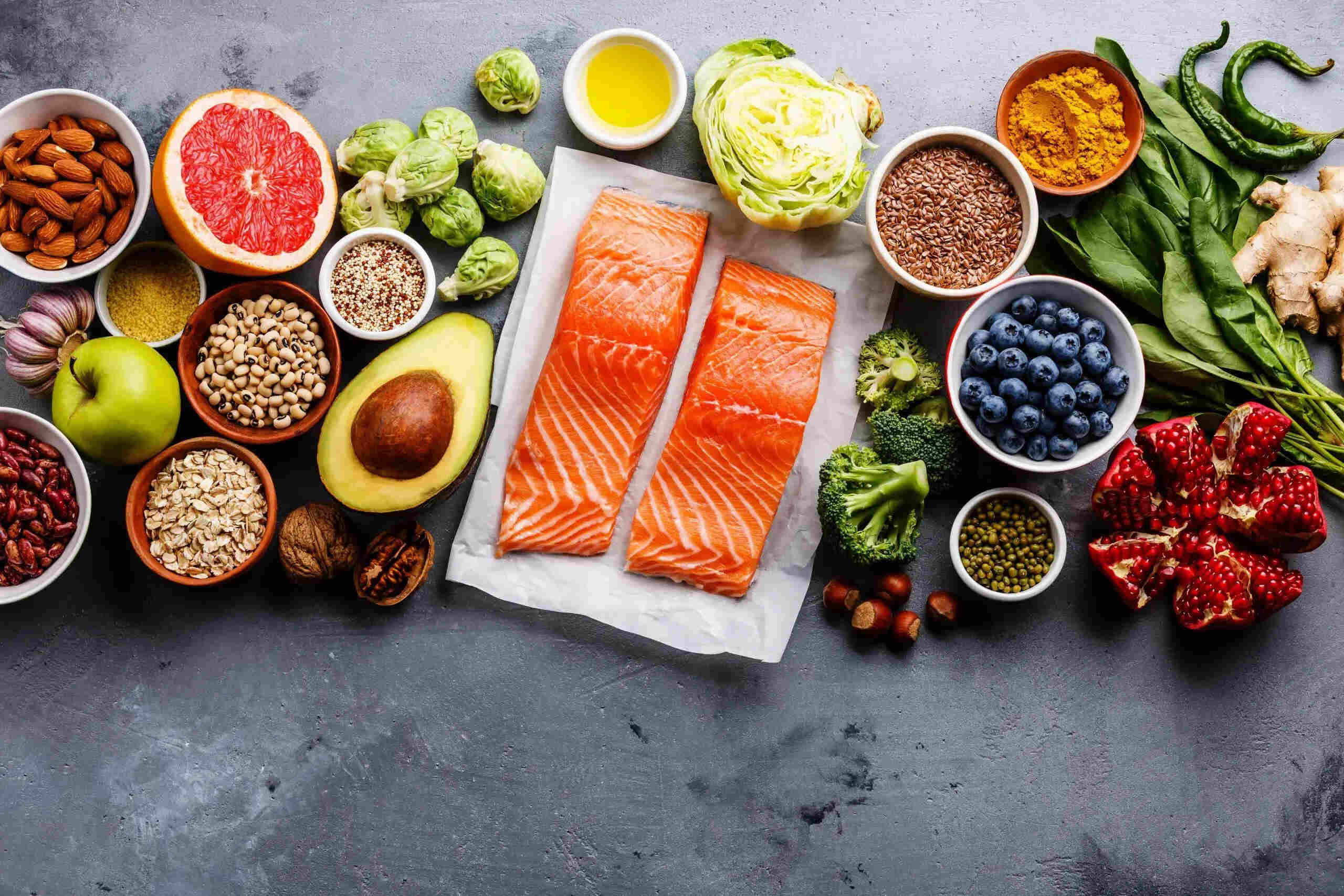
Eating a balanced meal is like giving your body a big hug. But what exactly makes a meal balanced? It's all about mixing the right amounts of different food groups. Imagine your plate as a colorful palette, with fruits, veggies, grains, proteins, and dairy all playing their part. Each group brings its own special nutrients to the table, helping you grow strong and stay healthy. Think of proteins as the builders, grains as the energy boosters, and fruits and veggies as the protectors. Dairy, like milk and cheese, keeps bones sturdy. By combining these foods, you’re not just filling your stomach; you’re fueling your body with everything it needs to thrive. So next time you sit down to eat, remember to balance your plate and give your body the love it deserves!
Key Takeaways:
- Eating a variety of foods in the right portions, including fruits, veggies, proteins, and healthy fats, helps your body stay strong, happy, and healthy for a long time!
- Don't forget to drink water with your balanced meals to help your body digest food, stay energized, and manage your weight. It's like giving your body a refreshing high-five!
What is a Balanced Meal?
A balanced meal provides the right proportions of nutrients your body needs to function optimally. It includes a variety of foods from different food groups, ensuring you get a mix of carbohydrates, proteins, fats, vitamins, and minerals. Let's explore some interesting facts about balanced meals.
-
Variety is Key: Eating a wide range of foods ensures you get all the essential nutrients. Different colors and types of foods provide different vitamins and minerals.
-
Portion Control Matters: Even healthy foods can be harmful in large quantities. Balancing portion sizes helps maintain a healthy weight and prevents overeating.
-
Carbs Aren't the Enemy: Carbohydrates are a primary energy source. Choosing whole grains over refined grains provides more fiber and nutrients.
-
Proteins Build and Repair: Proteins are crucial for building and repairing tissues. Including lean meats, beans, or tofu in meals supports muscle health.
-
Fats are Essential: Healthy fats, like those from avocados and nuts, support brain health and hormone production. Avoid trans fats found in processed foods.
-
Fruits and Veggies are Powerhouses: These foods are rich in vitamins, minerals, and antioxidants. Aim for at least five servings a day for optimal health.
Why Hydration Complements a Balanced Meal
Staying hydrated is just as important as eating a balanced meal. Water plays a vital role in digestion, nutrient absorption, and overall health.
-
Water Aids Digestion: Drinking water helps break down food, making it easier for your body to absorb nutrients.
-
Hydration Boosts Energy: Dehydration can lead to fatigue. Drinking enough water keeps energy levels up and supports physical performance.
-
Water Supports Weight Management: Sometimes thirst is mistaken for hunger. Drinking water before meals can help control appetite and prevent overeating.
How Meal Timing Affects Balance
When you eat can be just as important as what you eat. Timing meals properly helps maintain energy levels and supports metabolic health.
-
Breakfast Fuels the Day: Eating a nutritious breakfast kickstarts metabolism and provides energy for the day ahead.
-
Regular Meals Prevent Overeating: Eating at regular intervals prevents extreme hunger, which can lead to overeating later.
-
Nighttime Eating Can Disrupt Sleep: Eating large meals late at night can interfere with sleep quality and digestion.
The Role of Mindful Eating
Mindful eating involves paying attention to the experience of eating and enjoying food without distractions. This practice can enhance the benefits of a balanced meal.
-
Mindful Eating Reduces Stress: Focusing on your meal can reduce stress and improve digestion by promoting relaxation.
-
It Enhances Satisfaction: Being present while eating helps you enjoy flavors and textures, leading to greater satisfaction and less desire to snack later.
-
Mindful Eating Encourages Better Choices: Paying attention to hunger cues and food choices can lead to healthier eating habits.
How Balanced Meals Impact Long-term Health
Eating balanced meals consistently can have significant long-term health benefits, reducing the risk of chronic diseases and promoting overall well-being.
-
Reduces Risk of Chronic Diseases: A balanced diet lowers the risk of heart disease, diabetes, and certain cancers by providing essential nutrients and maintaining a healthy weight.
-
Supports Mental Health: Nutrient-rich foods can improve mood and cognitive function, reducing the risk of depression and anxiety.
-
Promotes Longevity: Consistently eating balanced meals contributes to a longer, healthier life by supporting all bodily functions and preventing nutrient deficiencies.
The Power of Balanced Meals
Balanced meals are key to a healthy lifestyle. They provide the right mix of nutrients your body needs to function well. Eating a variety of foods ensures you get enough vitamins, minerals, and other essentials. This helps maintain energy levels, supports growth, and boosts your immune system.
Skipping meals or eating too much of one type of food can lead to health issues. It's important to include fruits, vegetables, proteins, grains, and dairy in your diet. These foods work together to keep your body strong and your mind sharp.
Making small changes, like adding more veggies or choosing whole grains, can make a big difference. Remember, balance is about variety and moderation. By focusing on balanced meals, you're investing in your long-term well-being. Keep these facts in mind, and you'll be on your way to a healthier you!
Frequently Asked Questions
Was this page helpful?
Our commitment to delivering trustworthy and engaging content is at the heart of what we do. Each fact on our site is contributed by real users like you, bringing a wealth of diverse insights and information. To ensure the highest standards of accuracy and reliability, our dedicated editors meticulously review each submission. This process guarantees that the facts we share are not only fascinating but also credible. Trust in our commitment to quality and authenticity as you explore and learn with us.
